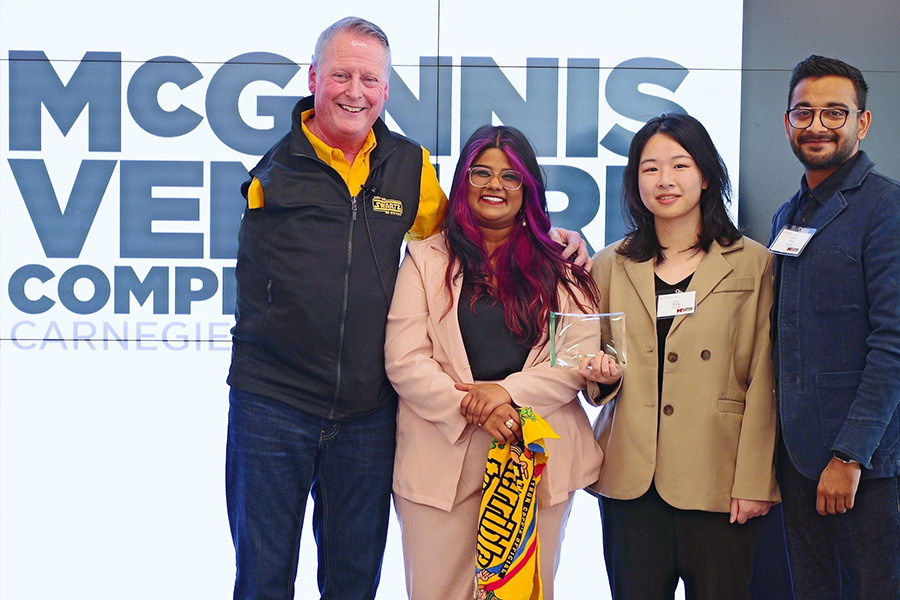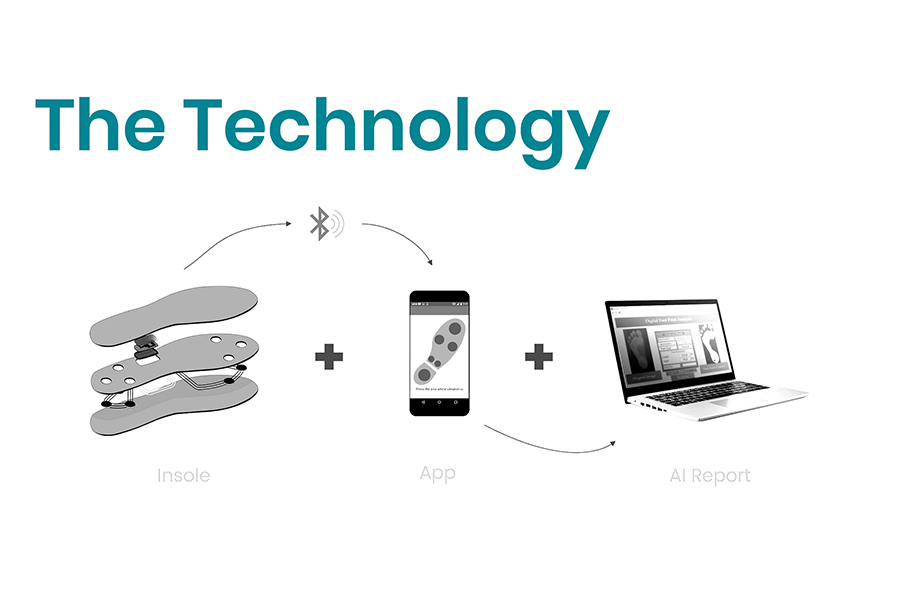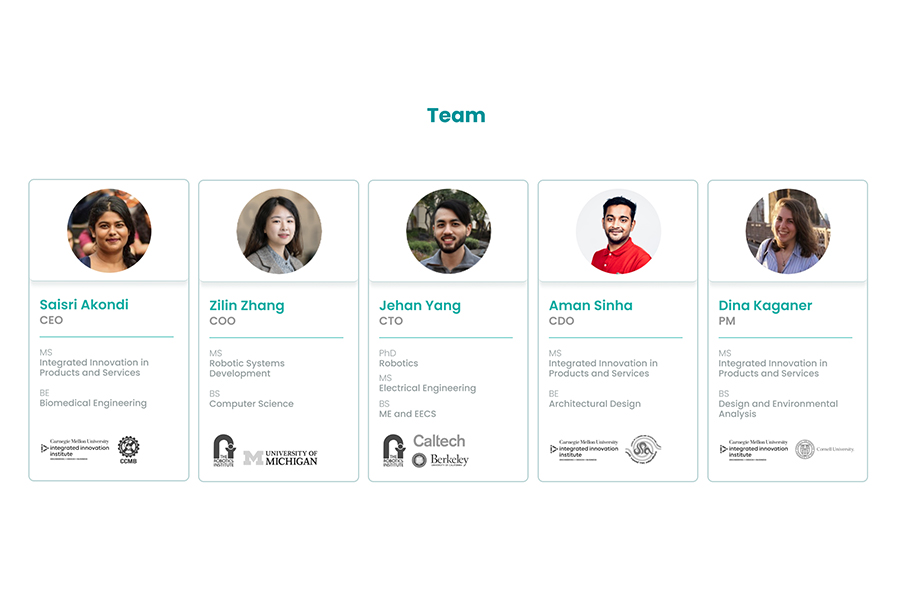
McGinnis Venture Competition 2023
A team of students from the Integrated Innovation Institute and Robotics Institute won first place in the McGinnis Venture Competition
By Jess Ignasky
The McGinnis Venture Competition is an annual platform for Carnegie Mellon University student entrepreneurs to compete for $60k in investments. Students participate in a multi-round pitch competition while interacting with alumni entrepreneurs and venture capitalists, receiving valuable feedback about their ventures, and competing for an opportunity to raise capital.
This year, a team from the Integrated Innovation Institute and Robotics Institute comprised of Saisri Akondi (MIIPS ‘23), Aman Sinha (MIIPS ‘23), Dina Kaganer (MIIPS ‘23), Zilin Zhang (MRSD ‘24), and Je-han Yang (PhD in Robotics) won first place in the final round of the competition with their venture, D.Sole.
D.Sole is a novel non-invasive at-home medical device that aims at early diagnosis and prognostic evaluation of peripheral neuropathy in patients suffering from diabetes. Diabetic Peripheral Neuropathy (DPN) is a condition in which nerves in the peripheries are damaged and cause loss of sensation which leads to diabetic ulcers and gangrene.
The team aims to address this condition with an insole worn by the patient to monitor the loss of sensation on the plantar aspect of the patient’s foot using a custom-made mobile application for feedback. The device takes the patient’s daily routine into consideration. It is easy to wear and monitor and provides personalized support with healthcare providers.

The venture idea was initially developed by Akondi in a bio-design fellowship prior to attending the Integrated Innovation Institute. In this fellowship, Akondi learned about the problem of diabetic ulcers and late detection, leading her to deep-dive into gaining a better understanding of the problems diabetic patients face under these conditions.
Upon attending Carnegie Mellon University, Akondi sought support from the Swartz Center for Entrepreneurship and built a team using the university’s resources that could further explore the solution from a technology feasibility perspective.
“[After building the team] I was lucky enough to bring on board some excellent designers from the Integrated Innovation Institute to assist in product design. Together, our team has worked hard to develop and bring our venture idea to fruition,” shared Akondi.

Team intact, D.Sole entered into the McGinnis Venture Competition with their concept. During the three rounds of competition, the team tackled crucial aspects of their venture such as understanding regulatory pathways, developing reimbursement strategies, and determining barriers to entry in the market. During the final round of the competition, Akondi and Zhang presented their problem, solution, and business concept.
“Navigating the reimbursement system and developing a feasible business model for D.Sole and its integration into the healthcare system proved to be both challenging and rewarding. While we recognized the potential of our technology, we also understood that without a viable solution that hospitals could adopt for remote monitoring of loss of sensation and diabetic ulcers, it would not be impactful,” Akondi explained.
“Through this process, we were able to develop a solution that can be easily implemented and utilized by hospitals to help patients.”
So…what is next for D.Sole?
D.Sole recently successfully developed the minimum viable product (MVP) of their insole and is preparing to conduct tests with the gold standard biothesiometer utilized in hospitals. This will help the team gain valuable insights into the functionality of their device when compared to current hospital-based devices. In addition, the team is actively seeking funding opportunities from venture capital and angel investors to support the project.
“Our objective is to continue validating our systems and collaborate with Durable Medical Equipment suppliers to establish a sales distribution channel for D.Sole,” Akondi said.
“We believe this will help us effectively bring our product to market and make it accessible to diabetic patients.”
